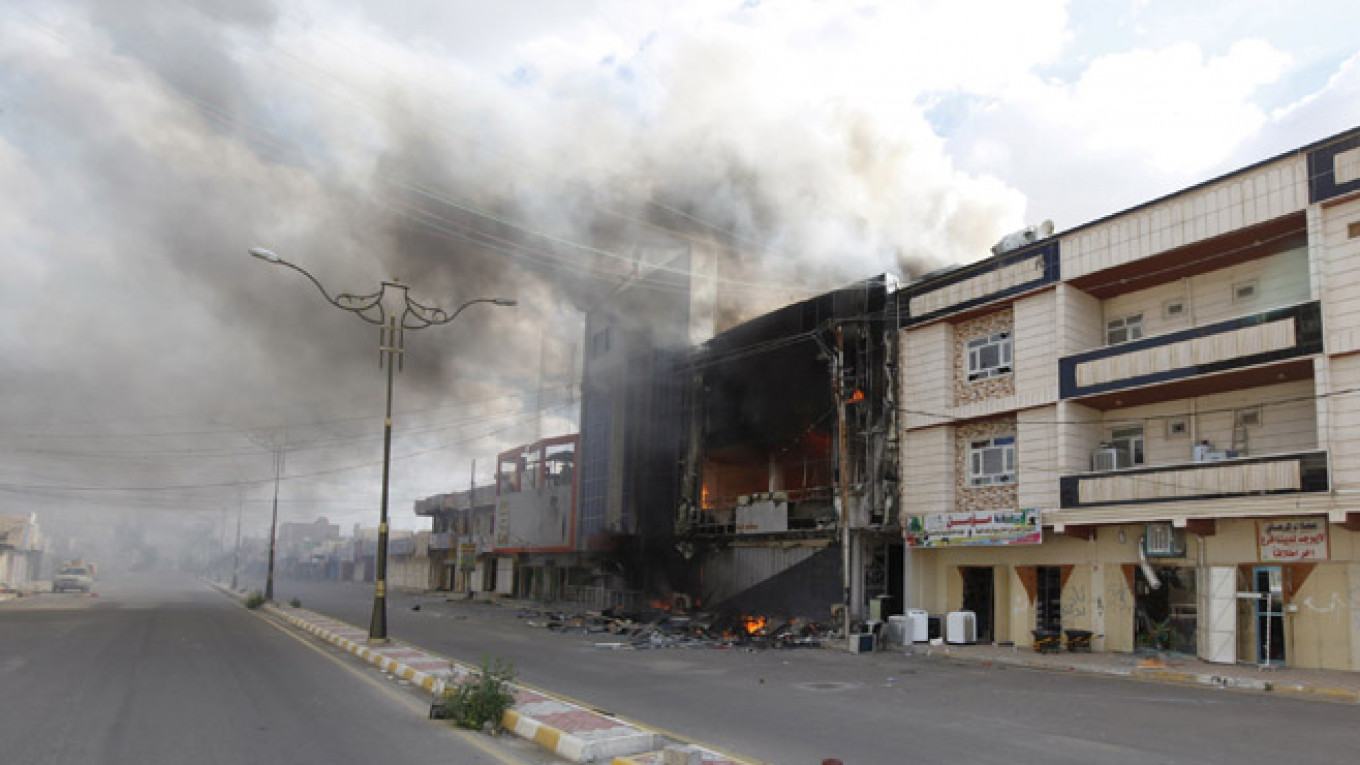With global attention focused on the war in eastern Ukraine, little media coverage has strayed to report on the restive North Caucasus region over the past several months. However, the death of terrorist leader Aliaskhab Kebekov on April 19 demands more scrutiny.
Kebekov's sudden demise leaves a dangerous power vacuum in the Caucasus Emirate, creating an opportunity for the Islamic State to seize control of Russia's festering insurgency and pose an even greater threat to international security.
Kebekov assumed leadership of the Caucasus Emirate only last March after the death of former chief Doku Umarov. The pair was responsible for a slew of deadly attacks across Russia, including the Moscow airport bombing in 2011 and twin bus explosions in Volgograd during the run-up to the 2014 Winter Olympics in Sochi.
The ascension of Kebekov came after intense infighting between various branches of the Caucasus Emirate. His selection as the first non-Chechen head of the movement signaled a further shift away from nationalist grievances that triggered two wars in the 1990s toward a fuller embrace of global jihad.
Kebekov garnered the respect of al-Qaida emirs from around the world. His propaganda videos aligned closely with al-Qaida decrees on teachings and tactics, including a call to limit civilian casualties in order to build more popular support. The latest Caucasus Emirate attack killed 10 police officers and wounded over 28 in a major assault on the Chechen capital of Grozny last December.
Al-Qaida especially prized Kebekov for his tough stance against Caucasus Emirate defectors to the overly brutal Islamic State. Since 2011, hundreds of North Caucasus insurgents have traveled to Syria to join the ranks of the Islamic State. Leaders of the Dagestani jamaat, the most violent branch of the Caucasus Emirate, recently pledged allegiance to Islamic State caliph Abu Bakr al-Baghdadi.
Kebekov's relatively moderate policies coupled with his theological credentials had somewhat shielded vulnerable potential recruits in the North Caucasus from the coercive pull of Islamic State propaganda.? Grigory Shvedov, editor of Kavkazsky Uzel (Caucasian Knot), an online news portal that tracks the region, stressed that the loss of Kebekov would likely compel more Caucasus Emirate fighters to align with the Islamic State.
Some experts believe that Muhammad Abu Usman, a senior Sharia judge, will succeed Kebekov as head of the Caucasus Emirate. However, it is more likely that the power vacuum will allow high-level defectors, such as Rustam Asilderov, to promote the ideology of the Islamic State throughout the ranks.
With enough Caucasus Emirate defectors to provide a solid operational foothold, the Islamic State may redeploy its own Chechen juggernauts, such as Abu Omar al-Shishani, to strengthen Russia's insurgency. The return of battle-hardened Russian foreign fighters would pose a grave risk to civilian populations.
Russian security services continue to employ heavy-handed tactics against insurgents and suspects alike that leave inhabitants aggrieved throughout the North Caucasus. Rampant corruption and human rights abuses will ensure a steady supply of individuals sympathetic to an Islamic State-directed Caucasus Emirate for years to come.
"There will be serious conflict between members of the Caucasus Emirate and faithful supporters of the Islamic State," predicted Akhmet Yarlykapov, a senior researcher at the Institute of Ethnology and Anthropology in the Russian Academy of Sciences.
"Much will depend on Kebekov's successor. But we can say unequivocally that now it will be more difficult for the Caucasus Emirate to resist the Islamic State."
Peter J. Marzalik is a freelance writer pursuing an M.A. in Security Policy Studies at George Washington University.


